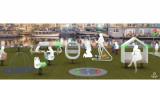Stay in the know on all smart updates of your favorite topics.
People get more connected and technology becomes part of our daily life. Between 2014 and 2015 there was a 27% growth of internet traffic in Amsterdam. Eleven out of fifteen Trans-Atlantic data cables are connected with or go through Amsterdam and the AMS-IX is the second largest internet exchange point in the world. In 2016 Amsterdam was ranked second in the European Digital City Index. Do you work on a smarter city? Share your technologies here!
Smart Shipping traffic
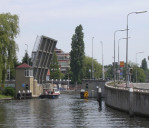
By measuring canal traffic, we can avoid traffic jams on waterways
Co-Creating Responsive Urban Spaces

The rapid developments of smart sensoring kick-started a new industry. However, in relation to public space, sensors are mainly used in interactive objects as part of cultural or temporal exhibitions like the Amsterdam Light Festival and Glow in Eindhoven. The Co-ReUS project aims to bring these kind of objects into the challenges of spatial design of public space.
Do you have a question, are you interested to join and/or would you like to follow the project via Newsletters? Please send an mail to project manager Jolanda Tetteroo via j.i.a.tetteroo @ hva.nl (remove spaces)
Prepare scholars in secondary vocational education to become self-employed.

The Dutch Creative Sector contains relatively many vocational educated people. Half of them are self-employed. Education doesn't match this trend. The program New Creative Starters developed a trajectory with a great amount of events and a supporting digital learning environment. These offer the secondary vocational scholars a great interdisciplinary creative network and prepares them for a career as a self-employed entrepreneur.
Werkloos talent begeleiden naar kansrijke sectoren

Werkloze jongeren en ondernemers uit branches met een tekort aan werknemers hebben moeite om elkaar te vinden. Brug Onderwijs – Arbeidersmarkt en Startersbeurs versoepelt de overgang voor werkloos talent naar kansrijke sectoren. Wapens in de strijd: Startersbanen, Scholingsvouchers en een Startersbeurs.
Urby

Urby helps locals to connect with the events and places they love.
FARIDABAD SMART CITY
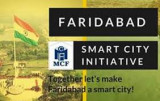
Smart Cities Mission is an urban renewal and retrofitting program by the Government of India with a
mission to develop 100 cities all over the country making them citizen friendly and sustainable.
The Union Ministry of Urban Development is responsible for implementing the mission in collaboration
with the state governments of the respective cities. The government of India under Prime
Minister Narendra Modi has a vision of developing 100 smart cities as satellite towns of larger cities and
by modernizing the existing mid-sized cities.
For More Information : http://smartcities.gov.in/
The 100 potential smart cities were nominated by all the states and union territories based on Stage 1
criteria, prepared smart city plans which were evaluated in stage 2 of the competition for prioritizing
cities for financing. In the first round of this stage, 20 top scorers were chosen for financing during 2015-
16. The remaining will be asked to make up the deficiencies identified by the Apex Committee in the
Ministry of Urban Development for participation in the next two rounds of competition. 40 cities each
will be selected for financing during the next rounds of competition.
TARGETED SMART CITY
In Round 2( Fast Track Mode) 13 Cities were announced as Smart Cities on 21st April 2016 by Ministry of
Urban Development.Faridabad was one of the cities enlisted in this list of 13. The available funds with faridabad smart city is EURO -266 million
Open Data API's Municipality of Amsterdam

DataLab is a workshop, knowledge-center and open stage.
<https://github.com/DatapuntAmsterdam>
DataLab is een werkplaats, kenniscentrum en open podium
Om letterlijk ruimte te creëren voor dataprofessionals en in data geïnteresseerde ambtenaren, bewoners en partners van de gemeente Amsterdam is het DataLab op initiatief van rve Onderzoek, Informatie en Statistiek opgezet. Een fysieke werkplaats, kenniscentrum en open podium voor Amsterdam.
Amsterdam Tech City => Global Tech City
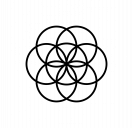
An innovative and intuitive platform made for streamlining and forging meaningful connections between like-minded, influential, and invested partners in order to efficiently make real progress towards achieving the United Nations’ 17 Sustainable Development Goals for a better world.
Amsterdecks
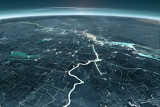
Amsterdecks is an urban network of water quality monitoring decks that provides access and information about water in Amsterdam.
Partners
City Alerts
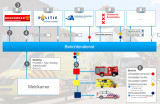
City Alerts provides adequate information of relevant information (personal and non-personal) between emergency services during emergency incidents.
Data and information

The website Amsterdam City Data and the website of Research, Information and Statistics (OIS) have been merged under the name Data en informatie (Data and information), with the url data.amsterdam.nl. The advantages of the merging are:
- topical data, statistics and research are coherently presented
- quick and new ways can be developed to make visual and interactive presentations of data and information
You will find data sources from researches which will be shown in the form of tables, factsheets, dashboards, animations and reports. As well as datasets and topical data from, among other sources, municipal records databases.
You can easily search for all these data and have them shown in a map, download them as a data set, or link them automatically to your own system via a so-called ‘web service’ or API.
The buttons in the green square on the user interface give access to maps, the panorama viewer and the data catalogue.
Under the moniker ‘In beeld’ (‘In pictures’) we present data and research results interactively and visually as animations, dashboards and data stories, among other formats.
The menu offers help while using these functionalities.
The data portal is for anyone who is looking for reliable and up-to-date information about the city. For Amsterdam’s public officials who want to make the right decisions and civil servants who want to work effectively. But also for civilians, researchers and journalists who are looking for facts. Data en informatie is openly accessible and data that is public can be freely used by anyone. Some of the data are available to authorized city employees only.
If you have any questions or remarks about Data en informatie please contact us through redactie.ois@amsterdam.nl.
The City-zen Methodology Approach For Urban Energy Transitions
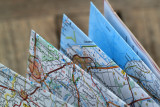
European cities and municipalities have considerable goals in becoming carbon neutral and energy self-sufficient in line with the Paris Agreement. To be successful in reaching climate ambitions we must start now, but it is complex and easier said then done. It requires radical changes such as far-reaching energy renovations, specific approaches, new heating networks, large-scale production facilities for solar power, geothermal energy and green gas. This needs the attention and action of all stakeholders: companies, knowledge institutions, companies, housing corporations and citizens. The European research project City-zen an Urban Energy Transition Methodology is developed to draw an Energy Master Plan for a city. The plan, a roadmap, exists of several (practical and local oriented) energy interventions and measures, both at the technical and strategic level which can be put on a timeline. In this City-zen approach the roadmap with urban energy measures for Amsterdam and Grenoble is made in helping achieving their ambitious climate goals. With concrete examples for local neighbourhoods it explains the different scenarios that are necessary to reach ambitious climate and energy targets.
City-zen was an international consortium, a program stimulating learning-by-doing in Grenoble and Amsterdam between March 2014 and November 2019. The results can be found in a booklet or in detailed reports. http://www.cityzen-smartcity.eu/home/reporting/deliverables/
Smart street lighting powered by direct current at Port of Amsterdam
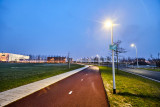
Lighting up bicycle paths with green energy
Monumental Buildings

Want to find out how your monumental building can become more sustainable? Check out the green menu of the Groene Grachten: http://beta.amsterdamsmartcity.nl/solutions/the-green-menu
Amsterdam Smart City joined De Groene Bocht with the principal aim of knowledge exchange, network sharing and, like all the other participating organisations, to contribute towards the further sustainability of De Groene Bocht. De Groene Bocht also took part in Amsterdam Smart City's Monumental Buildings Project. The purpose of the project was to find out which technologies and methodologies are practical when it comes to rendering monument buildings on the canals.
3D Print Canal House

The 3D Print Canal House is a ‘Research & Design by Doing’ project in which an international team of partners from various sectors works together on 3D printing a full-size canal house in Amsterdam. A beta-preneurial building project, which has the goal to revolutionize the building industry and offer new tailor made housing solutions worldwide.
Transform

Design executable actions and projects
CitySDK

The CityService Development Kit (CitySDK) is a system that collects open data of governments, in order to provide their availability uniformly and in real-time. Within this project Waag Society is responsible for the domain Mobility. We will talk to potential data suppliers and application developers to meet the needs of both parties. Combined with questions from various cities in Europe, these needs lead to services that are both generic and dynamic.
CitySDK is assisting seven European cities to release their data and offers tools to develop digital services. It also helps cities anticipate ever expanding technological possibilities. Over the past twenty years, Waag Society amassed much knowledge of technology and governmental sources. This was put to good use in the development of CitySDK. Think of services that help developers to make applications that offer personalized travel advice.
Bert Spaan, developer at Waag Society, has made a map within the framework of the European Smart CitySDK project to show all 9,866,539 buildings in The Netherlands, shaded according to their year of construction. This give us a complete new image of the country and clearly shows the age of cities, whether they are still relatively young (in blue, built after 1960) or very old (in red). A nice example is a city like Haarlem, of which the old inner city clearly lights up, or Almere, covered in blues as it is built in recent times.
With these services, a pilot study will be conducted in Amsterdam. Then, the applicability of the services will be tested in Helsinki, Manchester, Barcelona, Rome, Istanbul and Lamia.
As part of the City Service Development Kit and the Open Data Exchange projects the City Dashboard Amsterdam has been developed, in which lot of effort has been expended to make existing data sets available in realtime. A true treasure, that contains an enormous insight in what make the city tick.
Green Innovation Cluster
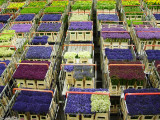
Transforming knowledge into concrete actions to take for companies that are part of the consortium.
<http://www.greenportaalsmeer.nl/greenport-aalsmeer/activiteiten/green-innovation-cluster/>
Stay up to date
Get notified about new updates, opportunities or events that match your interests.
